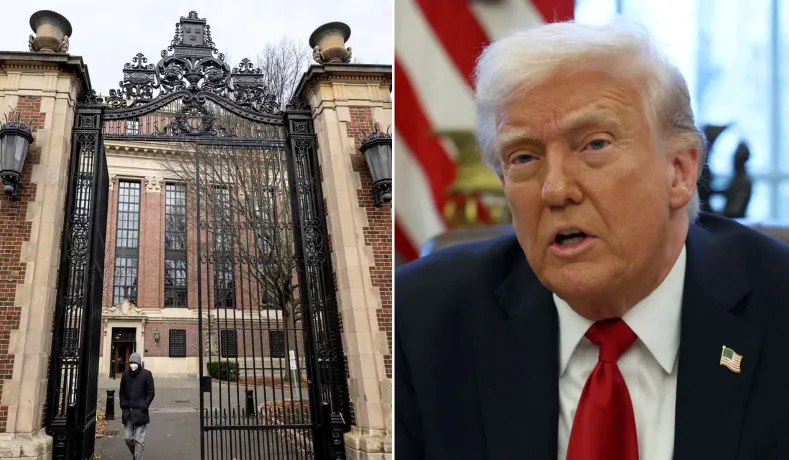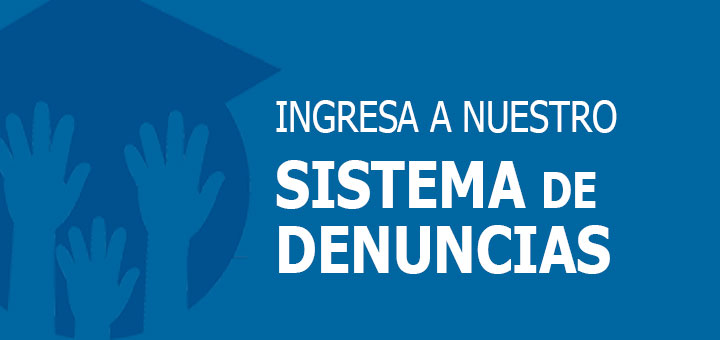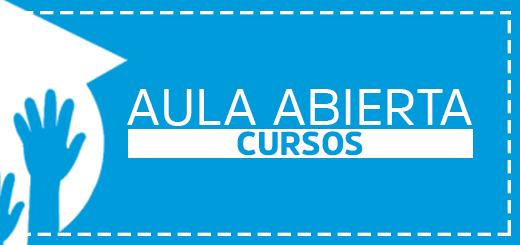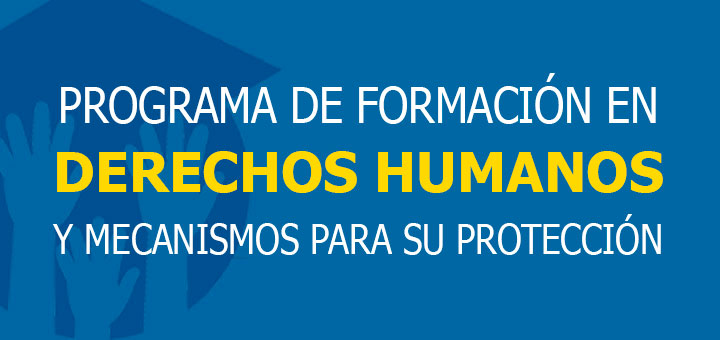Attacks on Academic Freedom in the United States Spark International Concern

Aula Abierta – Recent measures implemented by U.S. federal authorities could represent serious attacks against academic freedom and the self-government of universities. The cancellation of research grants, the imposition of anti-DEI (Diversity, Equity, and Inclusion) policies, and threats to the autonomy of Harvard University and others demand thorough analysis and strong denunciation in the context of potential violations of international human rights standards.
The right to academic freedom and institutional autonomy has long been recognized as a cornerstone of democratic societies and a fundamental component of the right to education. Nevertheless, recent governmental actions within the United States have raised serious concerns among human rights advocates, particularly regarding the increasing encroachment on academic inquiry, free research, and university governance.
This press release outlines recent measures taken by federal authorities, which represent a systematic attack on academic freedom and university self-governance. The measures, including the termination of vital research grants, the imposition of anti-DEI (Diversity, Equity, and Inclusion) policies, and direct threats against Harvard University’s independence, must be analyzed and denounced as violations of international human rights standards.
Funding Cuts for Diversity, Equity, and Inclusion (DEI) Research: Academic Censorship in the U.S.?
In a deeply concerning development, researchers engaged in Diversity, Equity, and Inclusion (DEI) studies have faced cancellation of critical research grants, justified under a premise that categorically undermines the scientific value of their work.
The platform Inside Higher Education reported that, on March 18, the National Institute of Health sent a letter to the University of Nebraska at Lincoln (UNL), indicating that, “research programs based primarily on artificial and nonscientific categories, including amorphous equity objectives, are antithetical to the scientific inquiry, do nothing to expand our knowledge of living systems, provide low returns on investment, and ultimately do not enhance health, lengthen life, or reduce illness”.The consequences of this stance are not theoretical. Katie Bogen, a Ph.D. student in clinical psychology at UNL, discovered that her $171,000 National Institutes of Health (NIH) grant supporting her dissertation research had been canceled (See: https://www.insidehighered.com/news/government/science-research-policy/2025/03/28/nih-grant-terminations-have-frightening?utm_source=Inside+Higher+Ed&utm_campaign=0436daec3a-). Ms. Bogen’s study, which aimed to explore critical issues regarding sexual violence disclosure among bisexual women and its impact on mental health, was deemed “non-scientific,” despite its rigorous methodology and public health relevance. Several researchers have received letters from the NIH cancelling their research grants under the same motivation (See: https://www.statnews.com/2025/04/15/nih-grants-funding-terminated-health-equity-research-wrong/).
Prioritization of Funds Does Not Justify Ideological Censorship of Scientific Research
While prioritization of funding objectives is within the scope of administrative discretion, undermining entire fields of scientific inquiry based on ideological biases violates the right to academic freedom. It suppresses critical research needed to address marginalized communities’ health needs and contravenes the obligation to promote scientific advancement without discrimination. This practice also contravenes the Principle 1 of the Inter-American Principles on Academic Freedom and University Autonomy. This principle affirms that academic freedom protects the diversity of methods, topics, and sources of research.
U.S. Funding Cuts Cripple Vital Medical Research
Moreover, vital medical research unrelated to DEI was abruptly halted as well. Researchers have denounced that the Executive Power’s funding freeze affected programs of lifesaving importance, notably (See: https://www.statnews.com/2025/03/25/nih-cuts-include-hiv-aids-prevention-program-for-adolescents/):
- The withdrawal of $18 million annually from the Adolescent Medicine Trials Network for HIV/AIDS Interventions, ceasing studies vital to understanding HIV prevention among vulnerable youth populations. Researchers noted that, “the loss of the program would mean stopping ongoing trials critical for expanding populations that benefit from emerging HIV treatments.”
- Arbitrary cuts to Columbia University included the cancellation of grants supporting Professor Jeanine D’Armiento’s research into rare diseases—research entirely unrelated to any DEI agenda.
The indiscriminate targeting of grants—particularly those critical for addressing public health crises such as HIV/AIDS—illustrates mistakes in funding decisions, disregarding the right to health and the scientific community’s autonomy. This practice further violates Principle 1, particularly the collective dimension of academic freedom, which ensures that society benefits from the products of scientific research and innovation. Halting lifesaving research under political motivations deprives society of critical advances in health and well-being, violating the right of access to the benefits of scientific progress.

Foto: (Uncredited / Associated Press)
Federal Guidelines Against DEI Content in Educational Institutions: University Autonomy Under Threat in the U.S.?
In addition to attacking individual research, federal authorities have sought to reshape educational institutions’ internal policies through coercive guidelines threatening their funding.
The federal government justified its measures by asserting: “American educational institutions have discriminated against students on the basis of race, including white and Asian students… Colleges, universities, and K-12 schools have routinely used race as a factor in admissions, financial aid, hiring, training, and other institutional programming.”
The administration demanded that all educational institutions receiving federal funds must:
- “Cease all reliance on race, directly or indirectly, in any aspect of their operations, from admissions to financial aid, housing, graduation ceremonies, or discipline.”
- “Comply with civil rights law as interpreted in the 2025 letter within 14 days, facing potential loss of federal funding otherwise.”
Though temporarily halted by a federal judge, who noted that, “schools would likely eliminate all vestiges of DEI to avoid any possibility of funding termination,” the directive created a chilling effect, coercing universities into eliminating DEI programs altogether.
The Executive Branch’s sweeping interpretation of anti-discrimination law contravenes the core purpose of civil rights protections: promoting equality and diversity. By equating support for racial equity with unlawful discrimination, these measures obliterate legitimate efforts to create inclusive educational environments. Similarly, academic freedom encompasses the freedom to research and to study without ideological restrictions. The university is the sanctuary of pursuing knowledge within a framework of plurality of streams of thought. According to Principle 2 of the Inter-American Principles on Academic Freedom and University Autonomy, State regulations must guarantee pluralistic, participatory, and democratic learning environments, not undermine them by coercively imposing ideological compliance. Furthermore, the threat to withdraw public funding as punishment for promoting racial diversity constitutes a violation of the prohibition against using budgetary measures to attack institutions, as stated explicitly under Principle 4.
Attempts to undermine Harvard University’s Autonomy?
Equally alarming, the federal government has directly attempted to intervene Harvard University’s internal governance, composition of teaching and research staff, as well as student’s admission.
On April 11, a letter signed by the Departments of Education, Health and Human Services, and the General Services Administration demanded drastic changes under threat of financial retaliation. The letter mandated (See https://www.harvard.edu/research-funding/wp-content/uploads/sites/16/2025/04/Letter-Sent-to-Harvard-2025-04-11.pdf) :
- The commissioning of external audits targeting specific departments allegedly “fueling antisemitic harassment.”
- The immediate shutdown of all DEI offices, committees, and initiatives, “under whatever name,” and the demonstration of compliance “to the satisfaction of the federal government.”
When Harvard rejected these unprecedented demands, the government retaliated (See https://www.insidehighered.com/news/government/politics-elections/2025/04/22/will-trump-follow-law-punishing-harvard):
- Freezing $2.2 billion in grants and $60 million in contracts.
- Planning to withdraw an additional $1 billion in funding.
- The Department of Homeland Security canceled $2.7 million in grants and threatened to revoke Harvard’s ability to host international students.
- The IRS reportedly considered revoking Harvard’s tax-exempt status, with President Trump stating, “Perhaps Harvard should lose its Tax Exempt Status and be Taxed as a Political Entity.”
These actions represent a severe violation of university autonomy, a fundamental safeguard of academic freedom. By leveraging financial and legal threats to enforce political conformity, the Executive Power is undermining academic institutions. These actions constitute a textbook violation of Principle 2 and Principle 4. Academic institutions must be free from government interference in their governance, teaching, and research priorities. Moreover, imposing budgetary measures to punish institutions based on ideological nonconformity violates the express prohibition in Principle 4 (vi) against using fiscal pressure as a tool of political reprisal.
Likewise, the targeting of DEI initiatives and affirmative action policies also raises concerns under Principle 3 of the Inter-American Principles, which obliges States to eliminate structural discrimination and adopt affirmative measures for historically marginalized groups.

Photo: EP
By dismantling DEI structures and terminating research grants focused on historically disadvantaged populations, federal authorities directly undermine efforts to address inequities in access to education, professional development, and scientific research.
Rather than fulfilling the duty to promote equitable access to academic opportunities, current federal policies actively exacerbate discrimination, deepen historical inequities, and obstruct the realization of academic freedom in its inclusive dimension.
Call to Action from the International Community
The current measures undertaken by U.S. federal authorities represent a breach of international and Inter-American human rights standards, particularly concerning academic freedom and institutional autonomy.
- They infringe Principle 1 by suppressing research diversity and freedom of inquiry.
- They violate Principle 2 by coercively undermining university self-governance.
- They breach Principle 3 by obstructing affirmative measures aimed at correcting historical discrimination.
- They contravene Principle 4 by weaponizing public funding and accreditation processes against dissenting institutions.
Such actions set a dangerous precedent not only for academic institutions within the United States but globally, where American standards often serve as reference points for academic freedom and autonomy.
In light of these violations, it is imperative for the international community, human rights bodies, and academic institutions worldwide to remain vigilant and call for the immediate cessation of these coercive measures. Upholding academic freedom and university autonomy is essential for sustaining democratic societies, fostering innovation, and promoting the human right to education.








